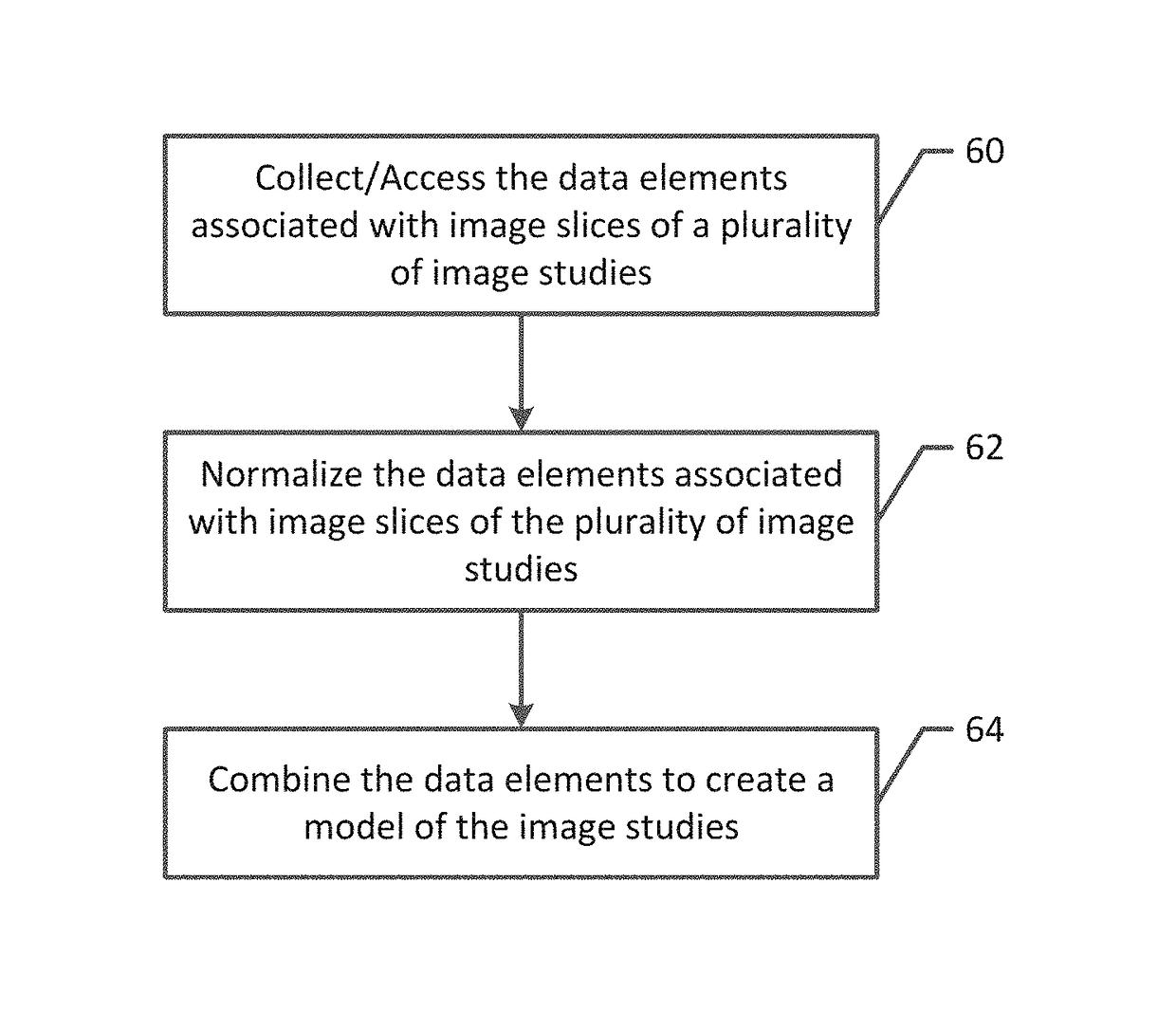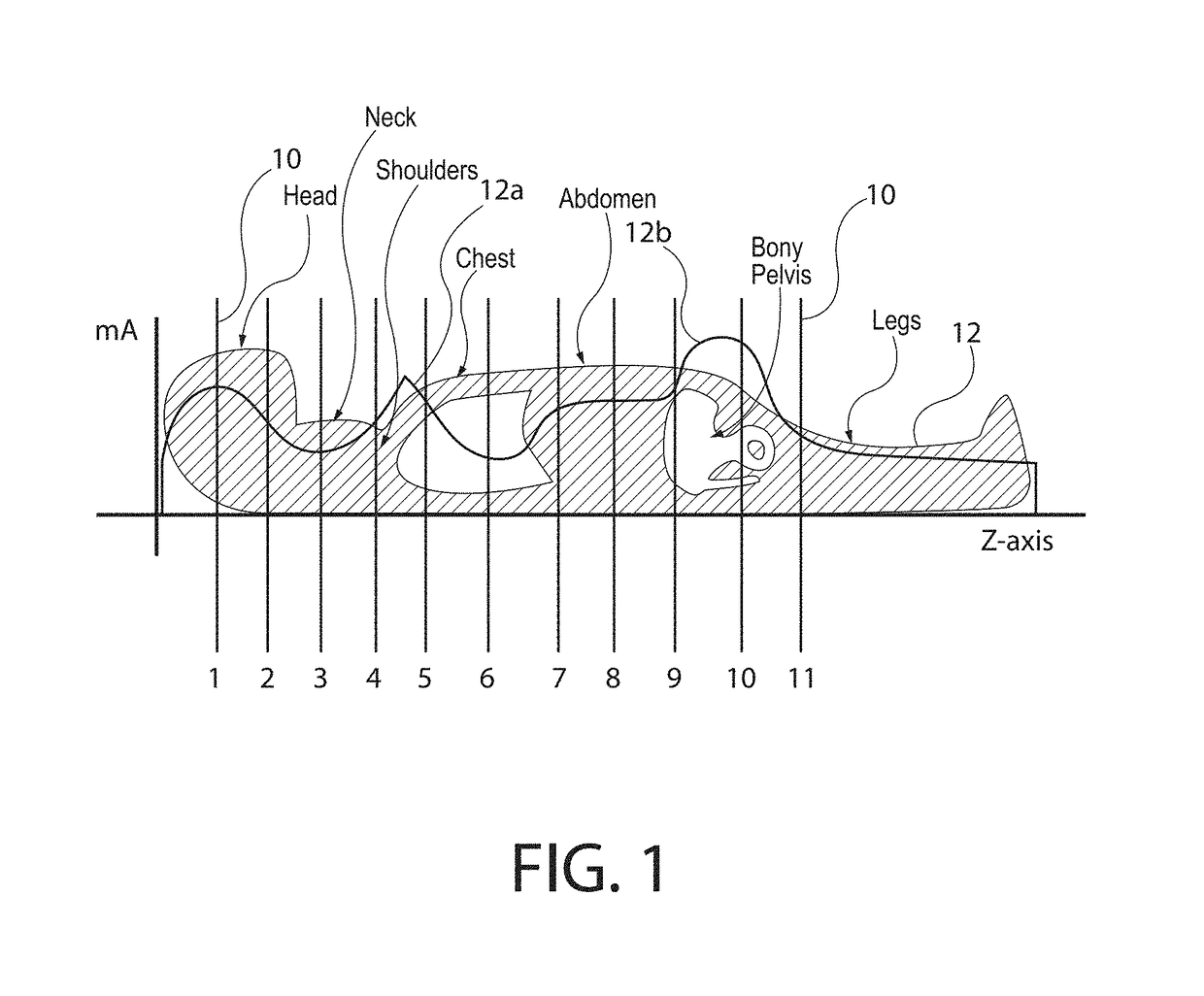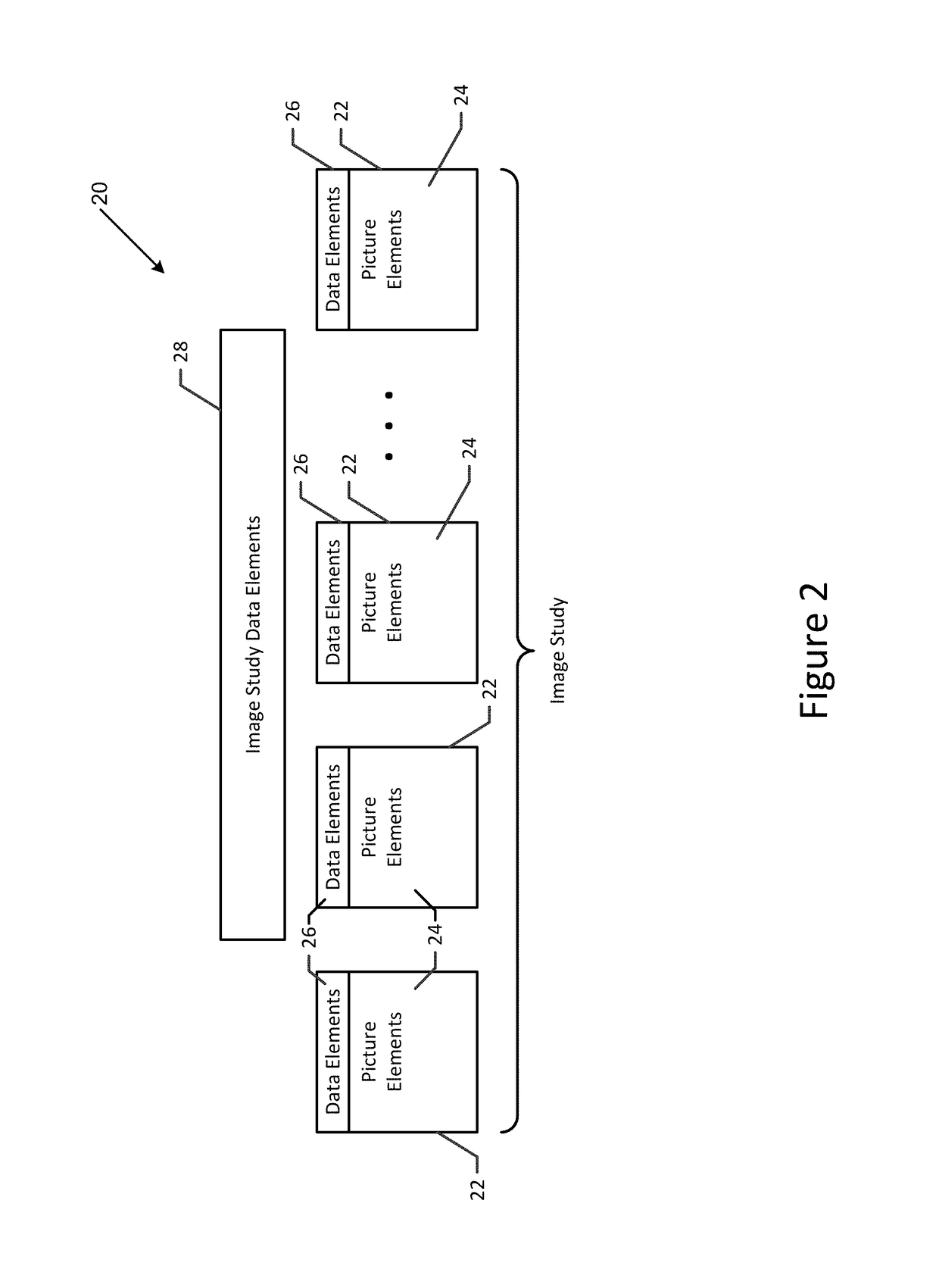Image processing system and method for detecting an anatomical marker within an image study
an image processing system and image technology, applied in image enhancement, instruments, healthcare informatics, etc., can solve the problems of requiring time-consuming and taxing review, and requiring substantial computing resources, so as to achieve the processing resources required to detect time and efficiently
- Summary
- Abstract
- Description
- Claims
- Application Information
AI Technical Summary
Benefits of technology
Problems solved by technology
Method used
Image
Examples
Embodiment Construction
[0019]Some embodiments of the present invention will now be described more fully hereinafter with reference to the accompanying drawings, in which some, but not all, embodiments of the invention are shown. Indeed, various embodiments of the invention may be embodied in many different forms and should not be construed as limited to the embodiments set forth herein; rather, these embodiments are provided so that this disclosure will satisfy applicable legal requirements. Like reference numerals refer to like elements throughout.
[0020]An image processing system, method and computer program product are provided for detecting a fiducial or an anatomical marker (hereinafter generally referenced as an “anatomical marker”) within an image study. The image processing system, method and computer program product rely, not upon the picture elements (pixels) that comprise the image slices of an image study, but on other data elements that are representative of one or more characteristics of the ...
PUM
 Login to View More
Login to View More Abstract
Description
Claims
Application Information
 Login to View More
Login to View More - R&D
- Intellectual Property
- Life Sciences
- Materials
- Tech Scout
- Unparalleled Data Quality
- Higher Quality Content
- 60% Fewer Hallucinations
Browse by: Latest US Patents, China's latest patents, Technical Efficacy Thesaurus, Application Domain, Technology Topic, Popular Technical Reports.
© 2025 PatSnap. All rights reserved.Legal|Privacy policy|Modern Slavery Act Transparency Statement|Sitemap|About US| Contact US: help@patsnap.com



